We have this added pressure throughout education, I can’t trip up, I have to be perfect, otherwise I don’t have any prospects for the future.
Anastasia Vinnikova, The Bank of England
Anastasia’s words summarise a key challenge facing young people; the pressure to be perfect. We know this plays a part in exacerbating anxiety, depression and eating disorders for young people. Social and mass media often promote unrealistic life expectations which can provoke persecutory perfectionism within young adults. This can lead to high levels of self-stigma and fuel the inner critic, turning up the volume of the negative internal voice which becomes more and more unkind, chipping away at self-esteem and confidence. As a result, many young people report feeling dissatisfied with their own achievements and experiences, thinking they are not good enough, constantly fearing failure or worse believing they are a failure and a disappointment to those they care about.
Businesses are fuelling the perception of perfection
Persecutory perfectionism is further exacerbated when businesses signal ‘perfection is needed’. Needed to obtain a good job and needed to have a successful career. Our research showed 74% of graduates are worried about meeting the expectations of their new employer. In order to remain competitive and attract talent, businesses have shaped recruitment messaging that consistently says ‘we are the best’ and ‘we want the best’. Wanting the best is often articulated as graduates needing a 2:1 or above from a reputable university and a full range of extracurricular activities. ‘We are the best’ is communicated as being a fast-paced high-performance environment with exciting opportunities and no downsides. Young people often internalise these messages. Making mistakes, receiving constructive feedback and failing a task all become synonymous with weakness and a sign of not being good enough as opposed to learning and developmental opportunities.
I believe this business approach needs a complete re-think. Presenting workplaces as perfect, sleek organisations, with no room for flaws does not reflect reality. It is counterproductive for both parties. Flaws and imperfections are the things that make us unique and it is our individuality that brings diversity of thought into the workplace, which every leader knows is critical for business success. Work can be challenging. Working hours can be long. Clients can be demanding. Whilst getting a 2:1 is a fantastic achievement, getting less than a 2:1 or not going to university certainly doesn’t mean you won’t have a successful career. We are not perfect, and nor should we try to be. Workplaces need to stop signalling that they are looking for perfect human beings.
Building authentic relationships
Businesses, therefore, need to describe the culture of their workplaces clearly and honestly. Adopting a more authentic recruitment approach requires employers to be much more thoughtful about the roles they are recruiting for. They need to ask themselves; does the role really require a 2:1 result or are skills such as problem-solving, being a team player, creativity, agility and an appetite for learning more important? Are emotions such as empathy, compassion and kindness required to create healthy high performing teams? Are meaning and purpose important for attracting talent?
Alongside this, it’s important that employers are transparent and understand the potential stressors of different job roles such as travel being exhausting and lonely or tight deadlines and long working hours leaving little time for connecting with family and friends. I think if businesses reflected on the real expectations of some roles on offer, they might consider re-designing them to be conducive to health or at the very least ensure they are clear about how they will support young people in those roles.
An industry standard on recruitment
Recruitment often includes disclosure forms asking people whether they have a health condition and/or mental health issue. However, our research shows 64% of graduates are worried that disclosing a mental health issue would harm their career prospects. It is therefore not enough to make reasonable adjustments once people have asked. It’s about creating a culture where hidden differences are anticipated, and inclusion practices are put in place so that people don’t have to search for support. It is there, promoted with pride, encouraged and welcomed. What if we changed disclosure forms to ask ‘how can we help to make sure you have the best experience at work?’ and ‘What do you need in order to bring your whole self to work?’. This could give people the opportunity to have greater autonomy and control over their work, two factors we know are critical components of a healthy job.
Bringing all this together, fuelled by the insight gathered from student bodies, higher education institutions, people in the early careers and recruiters, the CMHA has designed the Graduate Health Programme , which complements other CMHA Early Careers activity such as the TFTS Network . This programme, which is business and expert-led, will develop interventions for our members that will support a healthy transition from education to the workplace. For this we have developed four CMHA commitments outlined below which I look forward to taking forward so that businesses can be confident they are looking after their people from the very start of their careers:
- Create a gold standard for early careers recruitment practice
- Challenge the culture of perfectionism perpetuated by employers – support members on how to run authentic early careers recruitment campaigns that provide a faithful view of what the job is
- To build more mental health partnerships with higher education partnerships with a view to work together to better understand our different worlds, while supporting each other and sharing best practice
- Create a parents’ guide on how to support young people at stressful milestones such as exams, job applications and transitioning into the workplace.





